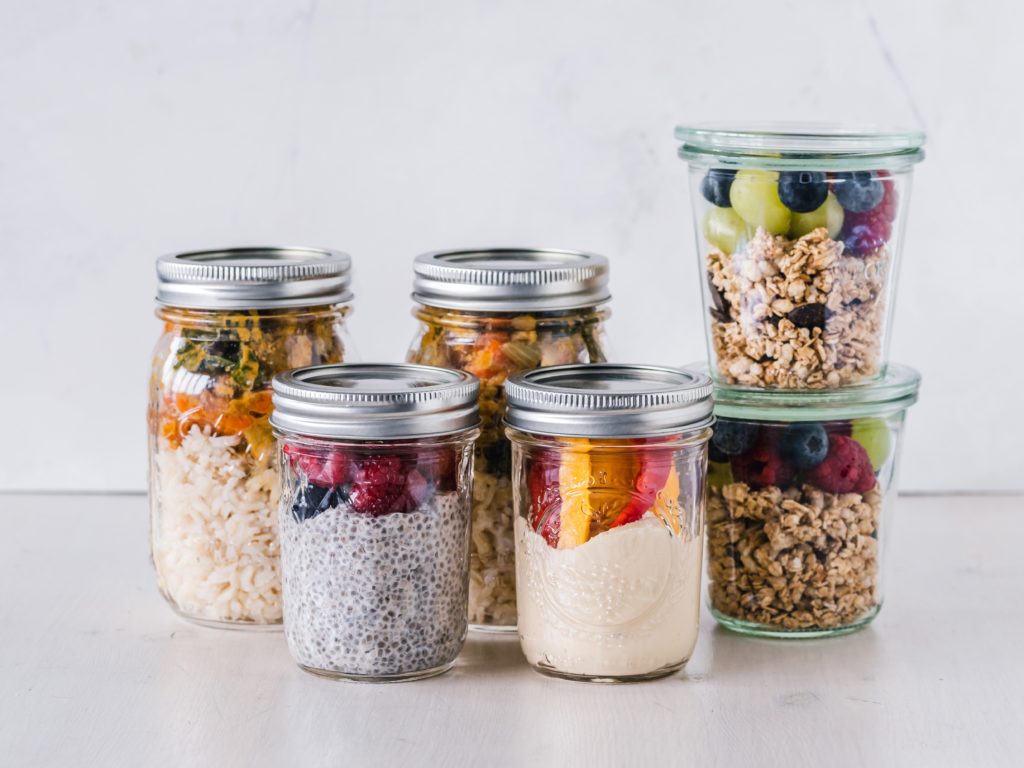Have you heard of Occam’s razor? It is a problem-solving principle which suggests “the simplest solution is probably the right one.”
Considering trying a brand new diet plan? We have all been there. You see a friend’s post on social media and the flurry of comments: “You look great! What are you doing?”
You scroll down and see this person has been doing <fill in the blank> exercise or eating plan or perhaps wrapping her body in what looks like saran wrap to help “burn belly fat”.
You think to yourself, maybe I should try that too?
The Newest Fad Diet
I get questions related to new diet/health trends all the time.
What do you think of the keto diet? CBD oil? Intermittent fasting? A sugar detox or a juice cleanse? This new meal replacement shake? Food addicts anonymous? Bariatric surgery?
While I can appreciate the curiosity, very often people are searching for a new innovative solution before they have truly given a fair shot to any of the tried and true approaches.
Going Back to Basics
We see this all the time in medicine, where invasive interventions and tests are run, and medications are added before basic lifestyle changes (e.g., nutrition, exercise, stress management) are fully tried or sometimes even considered.
The reality is there are no miracle cures for weight loss. And the vast majority of the time the way we typically diet does more harm that good. So let’s make sure you have given a fair shot to all the standard options before trying some flashy new fad, many of which carry significant risks, costs, or just will be a waste of your precious time and resources.
Tried and True Basics for Health
So what are some of these tried and true methods I speak of? Let’s dive in.
First Up: Nutrition

Although nutrition information can be conflicting, there are several things we know work for the vast majority of people. Michael Pollan wrote a book called In Defense of Food where he summed up the guidelines for healthful eating in 7 words: “Eat food. Not too much. Mostly plants.” And when he says “food” he means whole foods as close to their natural form as possible, not “edible foodlike substances” as he refers to our processed foods and foods made by food scientists.
I think this is a great place to start, don’t you?
There is also a lot of evidence for a whole-food plant based diet. I’ve talked about it as an alternative to chronic dieting and calorie counting and also about the great reductions in risk for diseases like cancer.
I’ve said it before and I’ll say it again. I’m much less concerned about what you actually eat and more about how you feel about it. However, I also want people to get accurate information about how what they put into their bodies truly impacts their health. As someone who worked in the health field for years, I was shocked when I learned the actual science behind plant-based eating, particular for cancer risk. You can read more about that here.
Even if a plant-based eating style isn’t for you, it’s tough to go wrong if you are increasing your plant intake (fruits, veggies, whole grains, legumes, beans) and reducing foods that are processed (think: many ingredients you have never heard of) and/or high in saturated fat (think: fatty and/or processed meats).
Next: Good ‘Ol Exercise
Shocking, I know, but exercise is pretty darn good for us.

There are SO many reasons to exercise besides weight control, but exercise has been shown to help with prevention of weight gain or regain after a weight loss effort (Brown et al., 2009; Jakicic & Otto, 2006). Of the small group of people that lose a significant amount of weight and keep it off long-term, they are typically quite physically active, burning an average of about 2600 calories per week (Catenacci et al., 2008).
That said, I generally encourage people to focus less on weight (or better yet, not at all!) and more on the immediate rewards of exercise, because humans are motivated by immediate gratification (e.g., I will feel good about myself or have more energy right after I exercise), much more than long-term outcomes (e.g., I’ll lower my cholesterol in 6 months and/or prevent diabetes).
What Would You Do If You Knew It Wouldn’t Impact Your Weight?
If exercise had ZERO effect on your weight, what type of movement would you do? What might feel good for your body?
Focus on internal reasons for exercise, ideally that occur right away, can help us shift exercise from a should to a want to and keep us exercising through life’s ups and downs. For more information and strategies on how to create the optimal motivation and become a lifelong exercise, check out my previous post.
If you are struggling with the HOW of creating internal motivation for exercise, my 10-minute free audio was designed to help you reclaim exercise as something you truly want to do. Grab it here or click on the banner below.

While the data linking weight and health risk is not consistent (and almost always accounted for by a third variable that explains the health risk), exercise IS linked with almost all aspects of our health. It is associated with reduced disease risk, improved insulin sensitivity, and reduced mortality, among many others.
So let’s make sure we are getting a combination of cardiovascular exercise and strength training, ideally something we enjoy, before we jump on the next diet fad train.
Finally, Sleep (My Favorite)
It really can’t be ignored, and yet so often is. If I had a dollar for every patient I had who wasn’t getting enough sleep or good quality sleep, I’d be incredibly rich. Sadly, sleep deprivation is WAY too common for a number of a reasons.

As a parent of young kids, I’m equally stressed and pumped about this recommendation. But it’s a reality: getting enough sleep and good quality sleep is essential for so many aspects of our health.
Not getting “enough” sleep (the average adult needs 7-9 hours) is associated with increases in heart disease, diabetes, and obesity (Itani et al., 2017) and oversleeping is also associated with the same diseases (Jike et al. 2018).
When it comes to weight, not getting enough sleep is associated with increased sugar and carbohydrate cravings, increases in abdominal fat, and weight gain (Hairston et al., 2010; Patel & Hu, 2008; Yi et al., 2013). Interestingly, a recent study found that even in women who typically get 7-9 hours, reducing their time in bed by 33% for one night resulted in increased hunger, cravings, and portion sizes the following day (Yang, Schnepp, & Tucker, 2019).
Sleep Just Can’t Be Ignored
I could go on, but do I really need to? Clearly, getting consistent sleep, not too little, and not too much, is quite important.
Basically, if you are trying to improve your health and not getting adequate sleep most of the time, you truly are fighting an uphill battle. You might reach the top of that huge steep hill, but it’s going to be way harder than if we could flatten it for you by getting you more sleep.
So before you jump on that new diet train fad, ask yourself, have I truly maximized what I am doing with my nutrition, exercise and sleep?
What Will You Focus on First?
We can’t do more than one thing at a time, so pick one to focus on first. What will it be?
- Nutrition
- Exercise/Movement
- Sleep
Now set 1 specific goal you can implement in the next week. Examples:
- Add 1 home-cooked veggie-packed meal
- Take long walk with my dog this weekend
- Turn off all devices by 8:00pm and head to bed before 10:00pm each night
It’s the Mindset that Truly Counts
Whether or not do you are able to make changes in your nutrition, exercise, or sleep habits is less important than WHY you do so and HOW you feel about it.
If you make it from a place of “I should” – it’s much less likely to stick.
However, if you make it from an internally motivated place (I want to, this is the best choice for me, this is how I will help myself), it’s much more likely to stick.
If you are struggling with moving from a “should” to a “want to” mindset, you aren’t alone. This shift takes time. It’s a skill that can be learned. My free audio training helps you get started on the step-by-step process to stop shift to positive habits from a place of body respect and self-care.

References
Brown, T., Avenell, A., Edmunds, L., Moore, H., V. Whittaker, V., Avery, L. & Summerbell, C. (2009). Systematic review of long-term lifestyle interventions to prevent weight gain and morbidity in adults. Obesity Reviews, 10, 627–638.
Hairston, K. G., Bryer-Ash, M., Norris, J. M., Haffer, S., Bowden, D. W., Wagenknecht, L. E. Sleep duration and five-year abdominal fat accumulation in a minority cohort: The IRAS family study. Sleep, 33, 289–295.
Itani, O., Jike, M., Watanabe, N. & Kaneita, Y. (2017). Short sleep duration and health outcomes: a systematic review, meta-analysis, and meta-regression. Sleep Medicine, 32, 246-256.
Jakicic, J. & Otto, A. (2006). Treatment and prevention of obesity: What is the role of exercise? Nutrition Reviews, 64, S57–S61.
Jike, M., Osamu, I., Watanabe, N., Buysse, D., & Kaneita, Y. (2018). Long sleep duration and health outcomes: A systematic review, meta-analysis and meta-regression. Sleep Medicine Reviews, 39, 25-36.
Yang, C., Schnepp, J., & Tucker, R. (2019). Increased hunger, food cravings, food reward, and portion size selection after a night of modest sleep curtailment in women without obesity. Nutrients, 11, 663.
Patel, S. & Hu, F. (2008). Short sleep duration and weight gain: A systematic review. Obesity, 16, 643-653.
Pollan, M. (2009). In Defense of Food: an eater’s manifesto. New York: Penguin Press.
Yi, S., Nakagawa, T., Yamamoto, S., Mizoue, T., Takahashi, Y., Noda, M., & Matsushita, Y. (2013). Short sleep duration in association with CT-scanned abdominal fat areas: the Hitachi Health Study. International Journal of Obesity, 37, 129-134.

Thanks for citing our article, but the first author is Yang, not Lang. Also, I would be happy to talk to you about any future sleep-related articles. You might be interested in our latest regarding the effects of protein on appetite after insufficient sleep.
Thanks for pointing that out! Typo is fixed. Yes, I’d love to read your article. I just found it here so I’ll post for anyone else who might want to check it out https://www.sciencedirect.com/science/article/abs/pii/S0031938420305837
I will absolutely keep you in mind for future sleep related podcasts and blog content. It’s such an important topic. Feel free to reach out in the future as well at info@drshawnhondorp.com